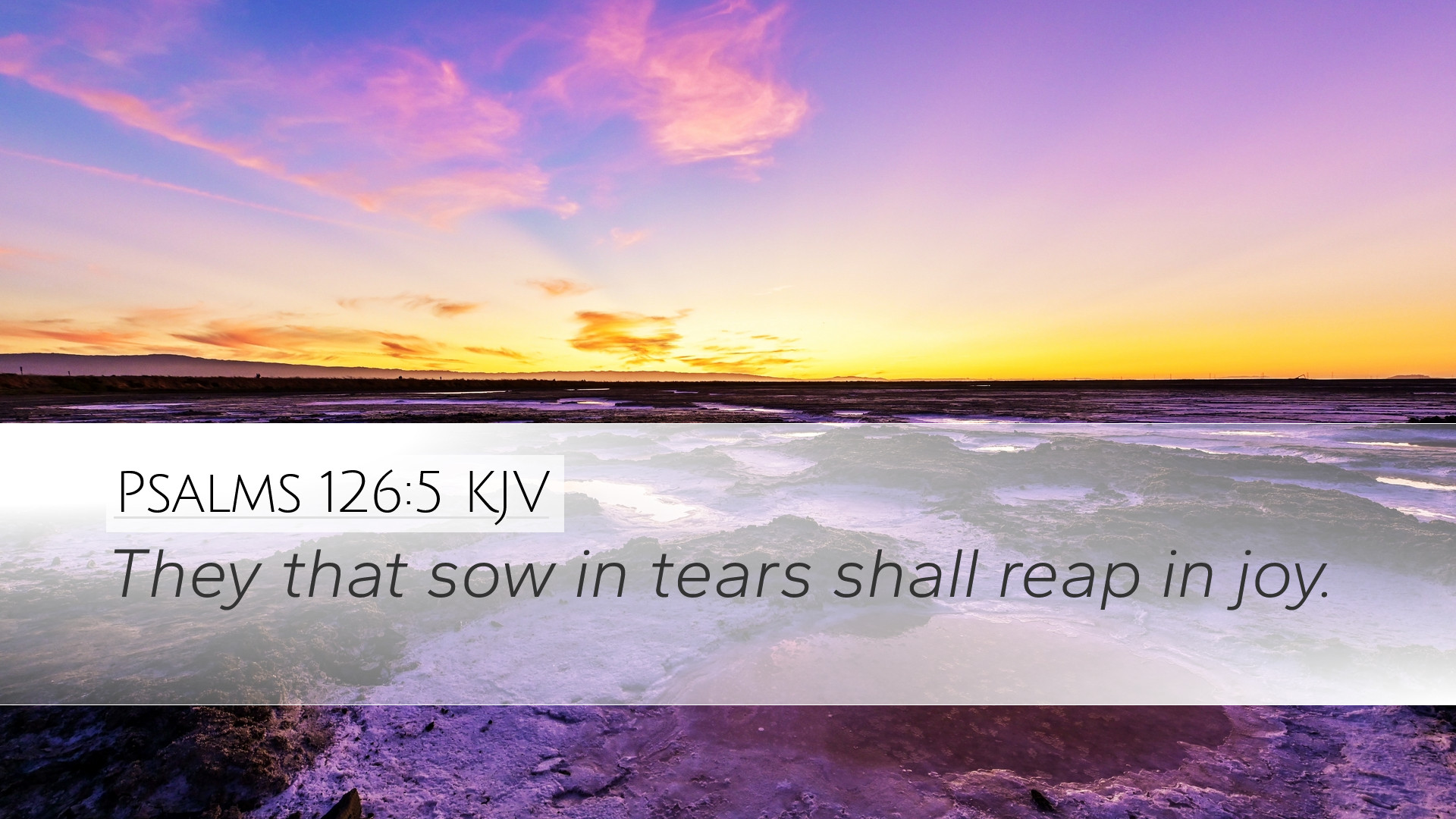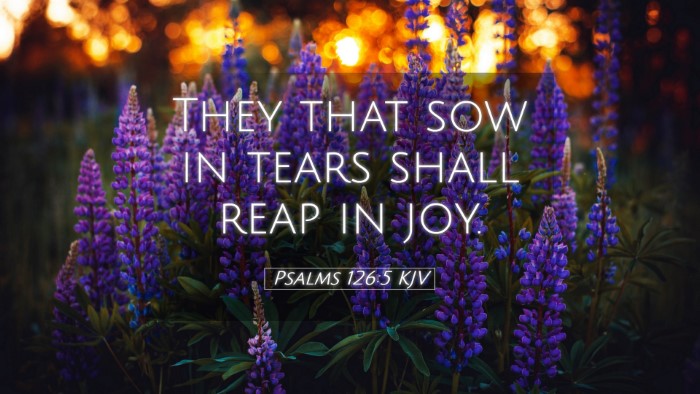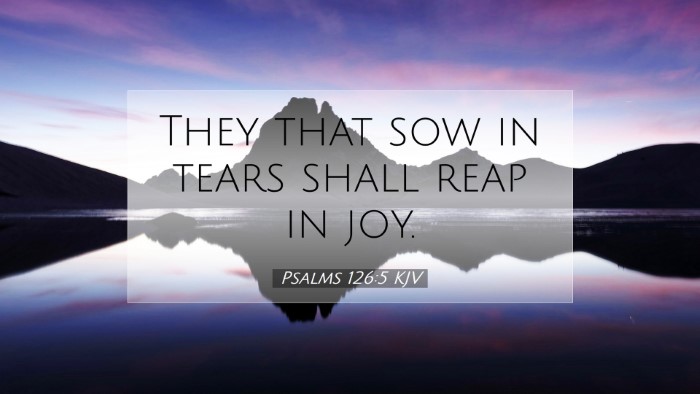Commentary on Psalms 126:5
Psalms 126:5 states: "They that sow in tears shall reap in joy." This verse encapsulates the profound theme of sorrow giving way to joy, a concept explored extensively in biblical literature. Below we provide a comprehensive commentary that draws from the insights of Matthew Henry, Albert Barnes, and Adam Clarke to present a theologically rich analysis suitable for pastors, students, and scholars.
Contextual Background
This verse is part of a psalm attributed to the exiles returning to Zion after their Babylonian captivity. It reflects the mixed emotions of the Israelites—grief over their sin and suffering but also hope for restoration and future joy. The imagery of sowing and reaping serves as a pivotal metaphor in this context.
Exegetical Insights
1. The Nature of Sowing in Tears
Henry notes that "sowing in tears" signifies an earnest and heartfelt effort in labor, particularly in spiritual endeavors. Here, tears symbolize the anguish and repentance that often precedes genuine transformation. They are not simply indicative of despair, but a reflection of deep emotional investment in seeking God’s favor and return to their homeland.
2. The Promise of Reaping in Joy
According to Barnes, the promise that follows—"shall reap in joy"—is a divine assurance that those who endure hardship and labor faithfully will ultimately experience joy. This joy is not merely a fleeting emotion but a deep-seated fulfillment found in the realization of God’s goodness and faithful promises. The joy represents both the present blessings and the future hope that sustains the believer through trials.
3. The Cycle of Sowing and Reaping
Clarke explains that the cycle of sowing and reaping is a recurrent biblical theme reflecting God's justice and grace. Sowing in tears indicates that one may face adversity and suffering; however, this is part of a divine plan that leads to spiritual harvest. The act of sowing itself is often painful, highlighting the necessity of sacrifice and perseverance in the Christian walk.
Theological Implications
The verse offers profound theological implications concerning the nature of suffering and joy within the Christian faith:
-
Divine Sovereignty:
Herein lies a recognition that God is sovereign over all circumstances. Sorrow holds purpose within God’s eternal plan, which ultimately leads to restoration and joy.
-
Kenosis and Transformation:
The concept of kenosis, or self-emptying, aligns with the theme of sowing. Just as Christ endured suffering for the joy set before Him (Hebrews 12:2), believers are called to bear their own crosses, expecting a future reward.
-
Hope amidst Trials:
This verse serves as an encouragement to maintain hope, reminding believers that tears are not the end but rather a gateway to greater joy—a hope that undergirds Christian perseverance.
Pastoral Application
For pastors and church leaders, Psalms 126:5 invites a holistic approach to ministry:
-
Empathy and Compassion:
Leaders are called to share in the sufferings of their congregation, understanding that tears often accompany deep spiritual labor. Providing a space for lament is crucial in pastoral care.
-
Encouragement in Adversity:
Preaching from this passage can offer hope to those enduring trials, reminding them of the promise of future joy that comes from God’s faithful intervention.
-
Teaching the Cycle of Sowing and Reaping:
Educating members on the necessity of spiritual labor—highlighting that every act of faith has an eventual harvest—can cultivate an enduring faith culture in the church.
Conclusion
Psalms 126:5 encapsulates a deep truth that resonates throughout Scripture: while earthly trials may bring tears, they are not in vain. Those engaged in God’s work will find joy beyond measure, reminding us of the hope that anchors our souls. Embracing both the agony of sowing and the ecstasy of reaping forms the bedrock of a mature and resilient faith.


